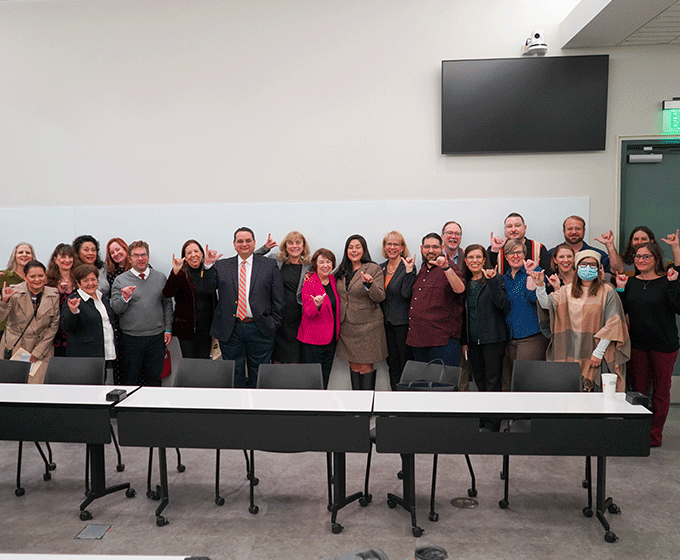Posted on September 8, 2022 by Nick Ward

standard
JANUARY 17, 2023 — The UTSA College of Liberal and Fine Arts (COLFA) recently celebrated a milestone: the 20th anniversary of its first doctoral offering, a Ph.D. in English. The program admitted its first cohort in 2002 and is one of 27 UTSA doctoral programs.
Since its inception, the program has foregrounded the needs of UTSA and South Texas. For the Ph.D. program at UTSA to gain approval from the Texas Higher Education Coordinating Board (THECB), UTSA had to first demonstrate the need for a new English program in the state. While nearby universities such as UT-Austin and Texas A&M had more generalized English programs at the time, COLFA saw an opportunity to focus on literature and the cultural practices of San Antonio and surrounding Hispanic populations. This attention to borderlands cultures, otherwise underserved in literature, encouraged the THECB to approve the program.
The program’s unique structure emphasizes cross-cultural and transnational approaches to literature and language, and it requires that students take courses in U.S. Latinx literature, and rhetoric and composition. While UTSA students have written their dissertations on such diverse subjects as women in hip-hop, 19th century African American print culture, and rhetoric and composition pedagogy, the vast majority have concentrated on the literature and theory of the U.S./Mexico borderlands region, Chicanx literature and culture, and colonialism and decolonial strategies of resistance.
Read more at UTSA TODAY

